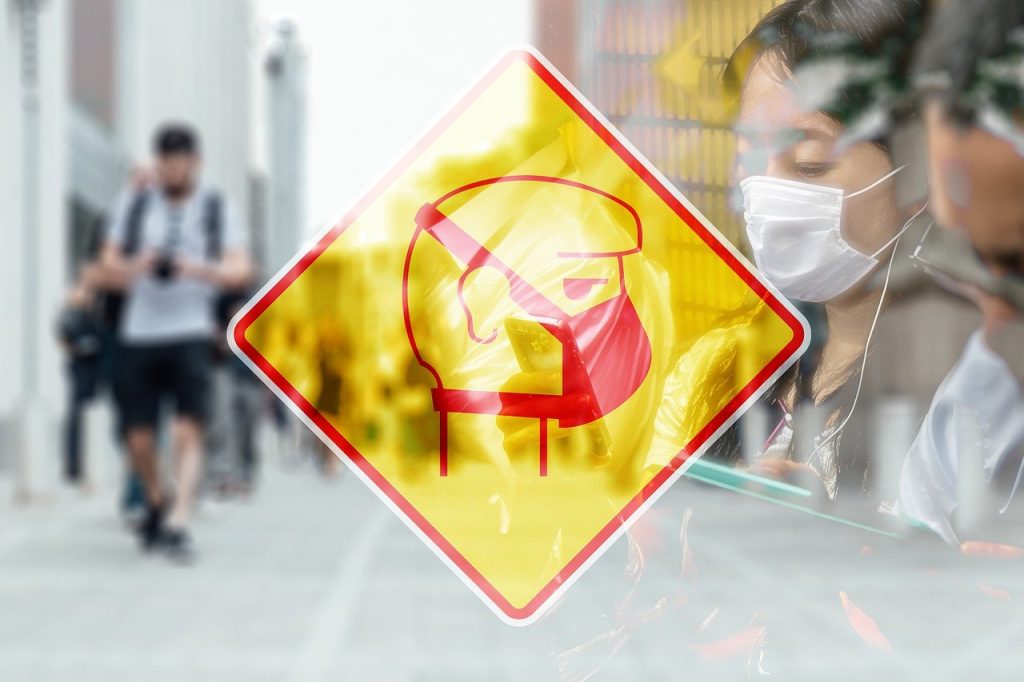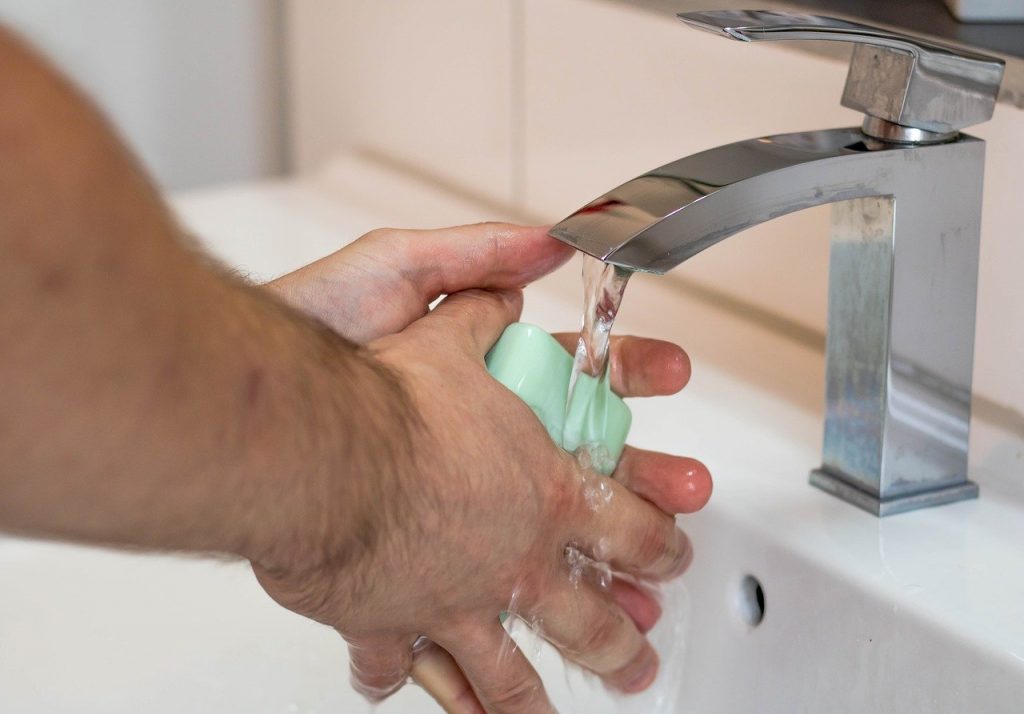Learn About It In German: Coronavirus Posted by Constanze on Mar 11, 2020 in Language
Guten Tag! Unless you have been living under a rock for the past few months, you’ll be aware of the coronavirus. Governments worldwide have released information about the coronavirus and what everyone can do to stop it from spreading. In this post I’ll write that information, using German words and phrases related to the subject, so you can learn some ‘topical’ German vocabulary. At the end of this post there will be a full vocabulary list with all the words used in the text, along with their genders.
Coronavirus – Was ist das? (What is that?)
The coronavirus (it is also called this in German), or COVID-19, is a new Krankheit (illness) that affects your Lungen (lungs) and Atemwege (airways).
The problem is that, as this is a new Krankheit (illness), there is currently no Heilmittel (remedy/cure) for it. And, as it is a Virus (virus), Antibiotika (antibiotics) won’t help. Any treatment given will help ease the Symptome (symptoms) of the illness, but your body will have to fight it itself. However, not everyone has a good enough Immunsystem (immune system) to be able to do that, so many people have died from the virus. On March 10th, the Zahl der Todesopfer (death toll) from the coronavirus stood at 4,011 people worldwide. Scientists are working on developing an Impstoff (vaccine) for the virus, but when this will be available is as yet unclear. However, it is worth noting that many who have contracted the virus, have recovered.
How can I stop Coronavirus from spreading?
Here are some Vorsichtsmaßnahmen (precautions) you should take:
Hände gründlich waschen – Wash your hands thoroughly. It is recommended to wash with antibakterielle Seife (antibacterial soap) and warm water for at least 20 seconds.
Niesen und husten (sneezing and coughing) – Cover your Mund (mouth) and Nase (nose) with a Taschentuch (tissue) or your sleeve when you sneeze or cough. Don’t use your hands.
Put used Taschentücher (tissues) in the Mülleimer (bin) straight away
Avoid contact with people who may have the Krankheit (illness). It is also recommended not to shake hands with people, as this encourages the spread of Keime (germs). Recently, German Chancellor Angela Merkel held out her hand to Horst Seehofer in a meeting, but he refused to shake her hand for this reason. They were both seen laughing about it and apparently she said it was the “right thing to do”!
Wear a Mundschutz (mask)
*
Germany
In Germany there are currently (as of March 10th) 1139 confirmed cases of the coronavirus, with 2 fatalities. The first person in Germany to contract the coronavirus was a 33 year-old man from Starnberg, near Munich. It is said he contracted it from a Chinese colleague who was visiting from Shanghai. The virus has since spread to the rest of the country, with the majority of states reporting confirmed cases.
The German health minister has commented that Germany is ‘gut vorbereitet’ (well prepared) to deal with the virus.
Click here for a German-language article and video (with text) that has some advice.
If your listening skills are advanced enough, you might like to listen to this German-language video, titled “Coronavirus in Germany: A reason to panic?”:
https://www.youtube.com/watch?v=zaMHf3LaTIs
Vocabulary from the text
Die Krankheit – illness
Die Lunge(n) – lung(s)
Die Atemwege – airways
Das Heilmittel – remedy/cure
Der Virus – virus
Die Antibiotika – antibiotics
Die Symptome – symptoms
Die Zahl der Todesopfer – death toll
Das Immunsystem – immune system
Der Impstoff – vaccine
Die Vorsichtsmaßnahmen – precautions
Hände gründlich waschen – wash your hands thoroughly
niesen – to sneeze/sneezing
husten – to cough/coughing
Der Mund – mouth
Die Nase – nose
Das Taschentuch – tissue
Der Mülleimer – rubbish bin
Die Keime – germs
Der Mundschutz – face mask/face guard

Build vocabulary, practice pronunciation, and more with Transparent Language Online. Available anytime, anywhere, on any device.






Comments:
Huntly Shelton:
Danke. Das war ganz interessant.